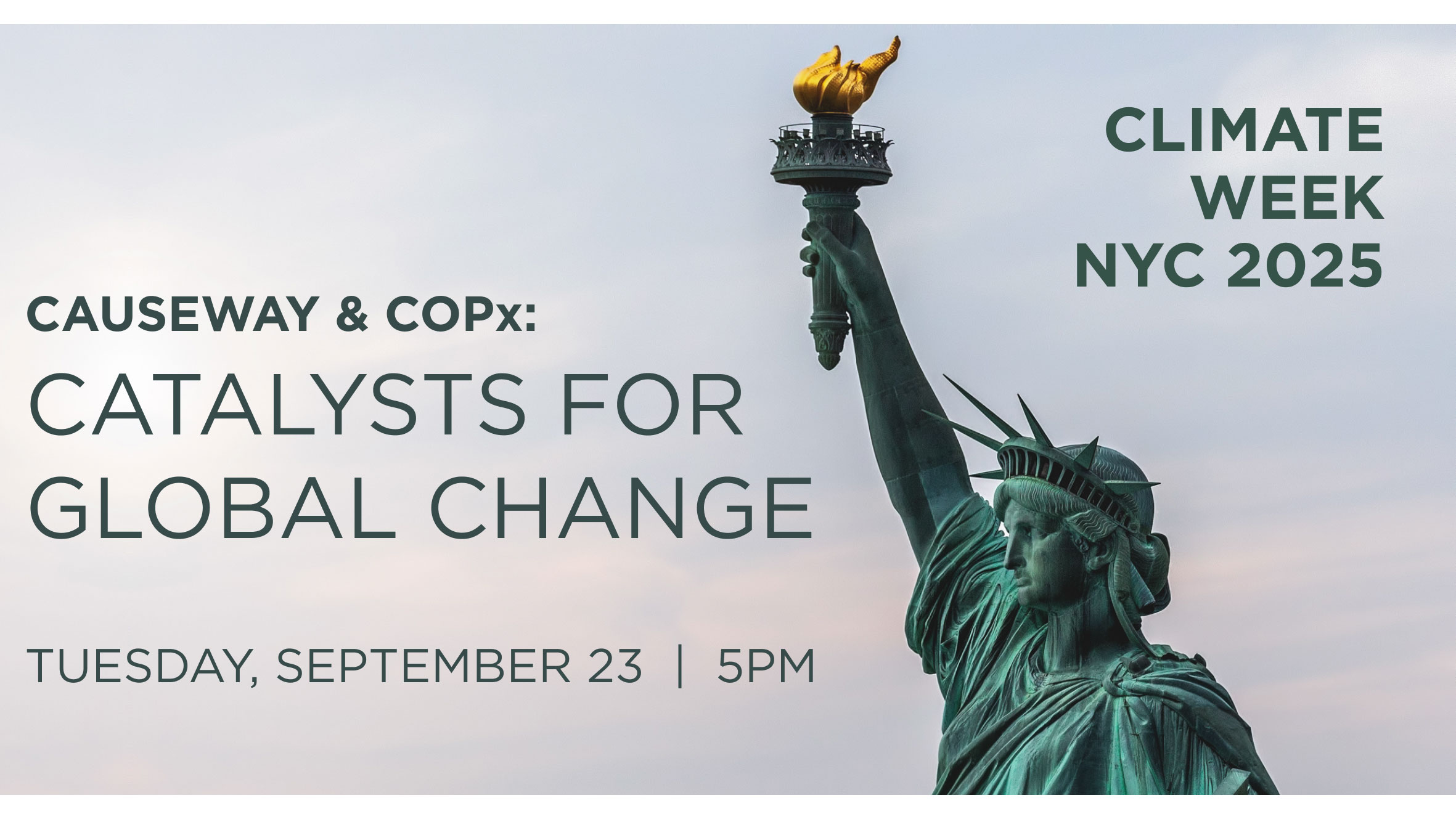Every year on August 9, the world briefly turns its gaze toward Indigenous People. Our cultures are celebrated, our songs and painted faces put on display. And then, silence returns. Behind the cliche, our communities remain marginalised, dispossessed, and forgotten. This must end.
I am Valentin Engobo Mufia, a son of Lokolama, a land nestled deep within the equatorial forest of the Democratic Republic of Congo. I have witnessed my people treated as strangers on their own ancestral lands. Our ancestral knowledge is dismissed, mocked, or exploited. My tribe, the Tshwa, has lived in harmony with the forest for generations. We know its plants, its spirits, its secrets. And yet, in the minds of many decision-makers, we are still seen as “sub-citizens,” obstacles to development, shadows in the trees.
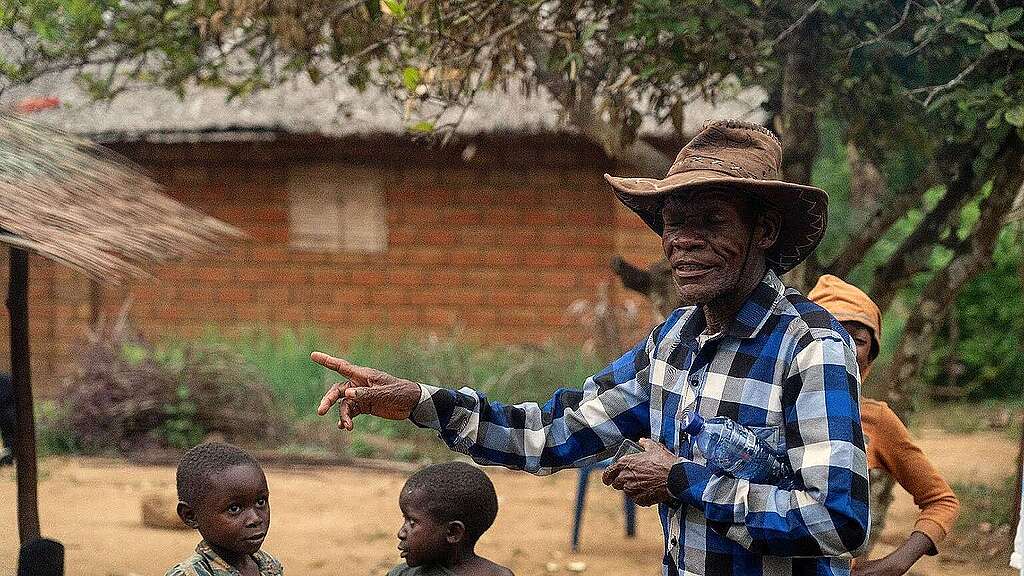
Indigenous communities challenging the status quo
My grandfather was one of the first in our region to challenge this invisibility, refusing to accept the submissive role imposed by colonial powers and local elites. He opened a path. Today, I continue that fight. Not for myself, but so that my children and their children may one day walk in a living forest, with their heads held high.
Because it is not only our culture that is under threat. It is also your future. The peatlands we have protected for centuries are among the most vital carbon sinks on earth. They are a natural barrier against climate chaos. And yet, instead of listening to us, we are sidelined. We are denied land rights over territories we have safeguarded for generations. Destructive projects continue to be approved without our consent, sometimes even in our name, but without our presence.
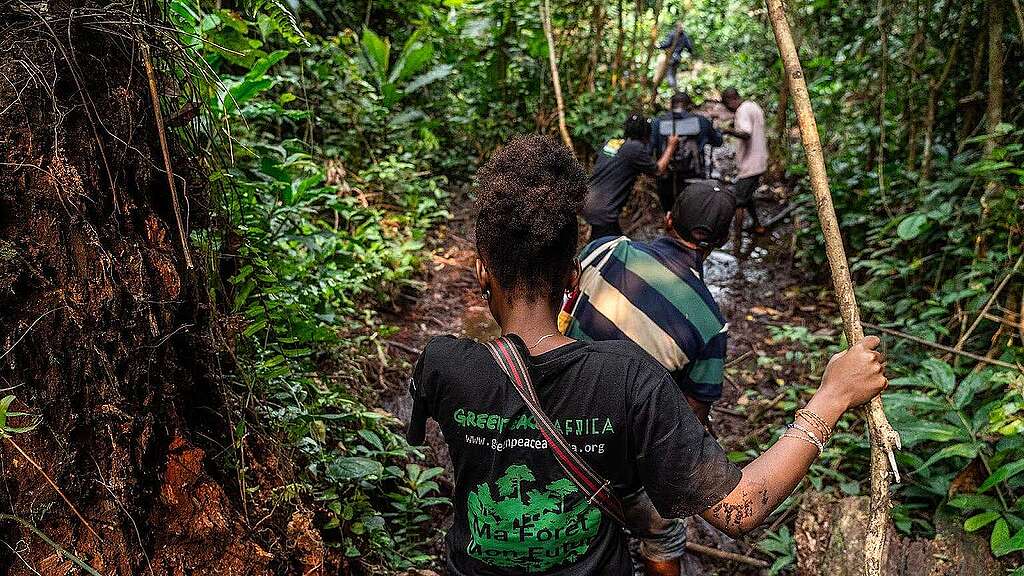
I have taken this fight to the highest levels, even filing a complaint against the World Bank for harmful policies imposed on our lands. This is more than a political battle. It is a fight for survival, for dignity, for the right to exist without having our identity erased or hijacked by others.
Today, we no longer accept symbolic gestures or hollow promises. We demand:
- Clear, international legal recognition of our rights
- Direct and structured access to climate finance
- Training and education tailored to our context
- And most importantly, full inclusion in all development policies and decisions
Indigenous People’s role in climate talks
Indigenous People will no longer be reduced to decorative roles in climate talks or NGO reports. We are not props in the environmental movement – we are its frontline defenders. And we demand to be respected and treated as such.
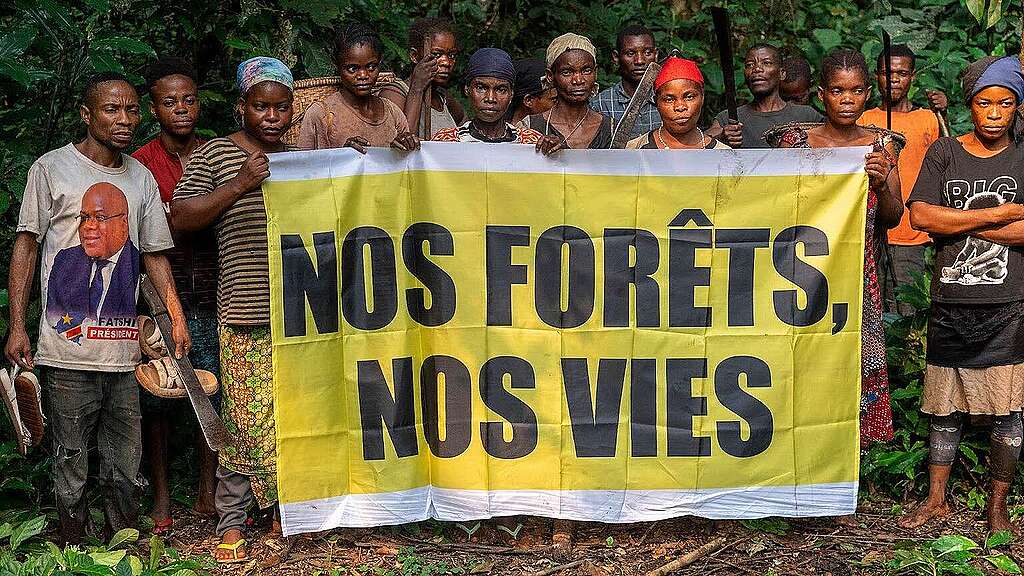
Yes, I fear that some actors will continue to speak on our behalf, capturing funds meant for us without ever involving us. But I still believe in the prophecy that has long circulated among our people: “The people of the forest will reclaim their voice and light the way for others.”
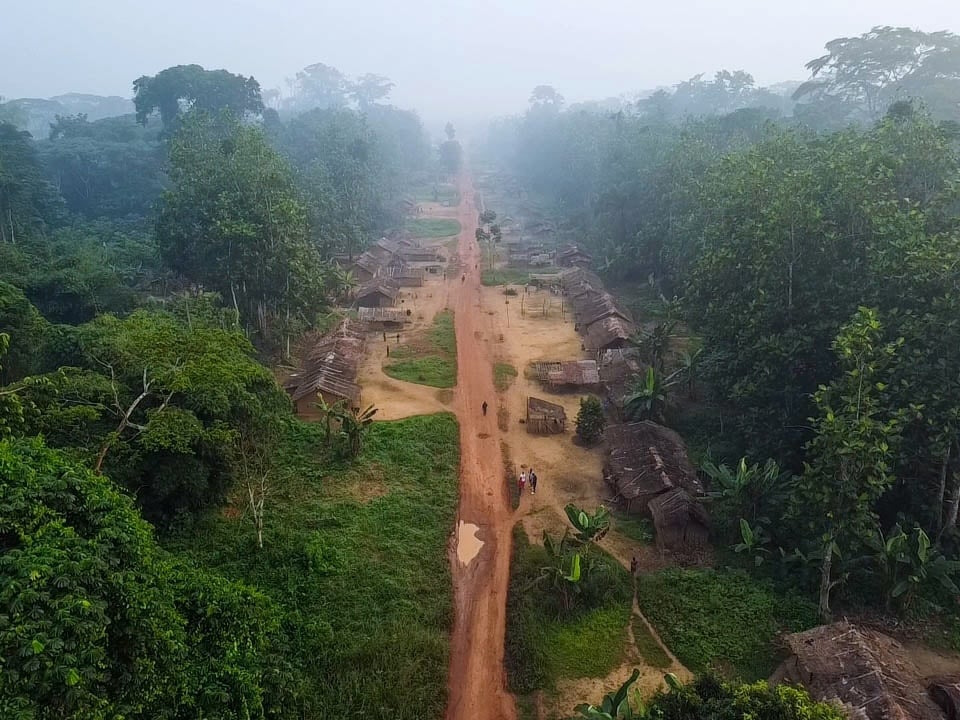
Protecting the forest doesn’t mean locking it away. It means using it with reverence and responsibility. We have always done that. Now it’s time for public policies and international institutions to do the same. It’s time for leaders to support projects born within our communities, to truly protect our ancestral lands, and to regulate the ruthless exploitation of natural resources.
Because in the end, we are one with the forest. And as long as we stand, we will fight for it, for ourselves, for you, for the future.
Valentin Engobo Lufia is representative of the Tshwa Indigenous People of Lokolama, DRC.
Guest authors work with Greenpeace to share their personal experiences and perspectives and are responsible for their own content.
Take action now to protect the Congo Basin.
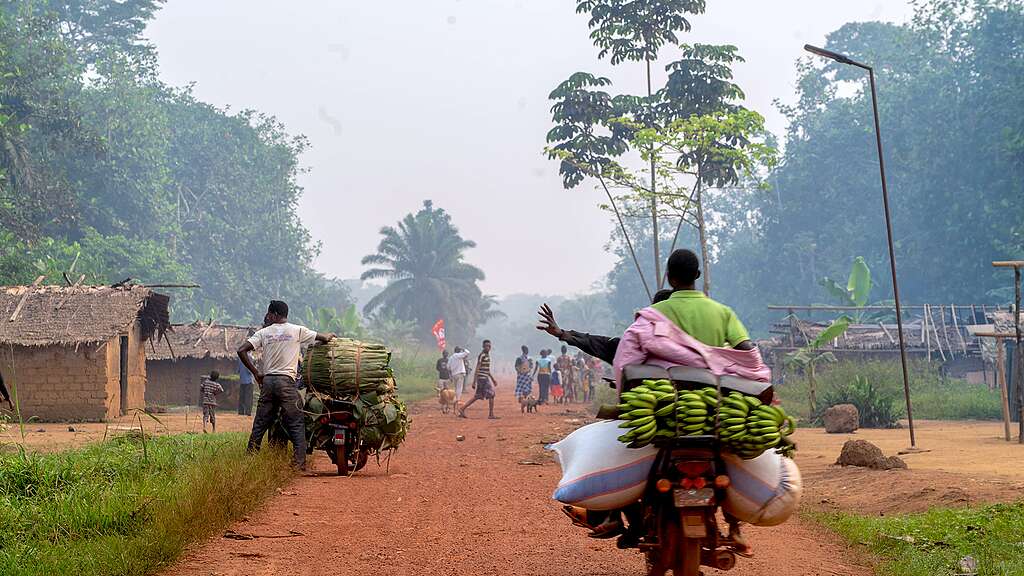
This story was originally published by Greenpeace Africa for the International Day of the World’s Indigenous Peoples (9 August). More stories from the Congo Basin forest available on Greenpeace Africa’s ‘travel diary from the Congo Basin’ blog series.
Source link
Valentin Engobo Lufia www.greenpeace.org


